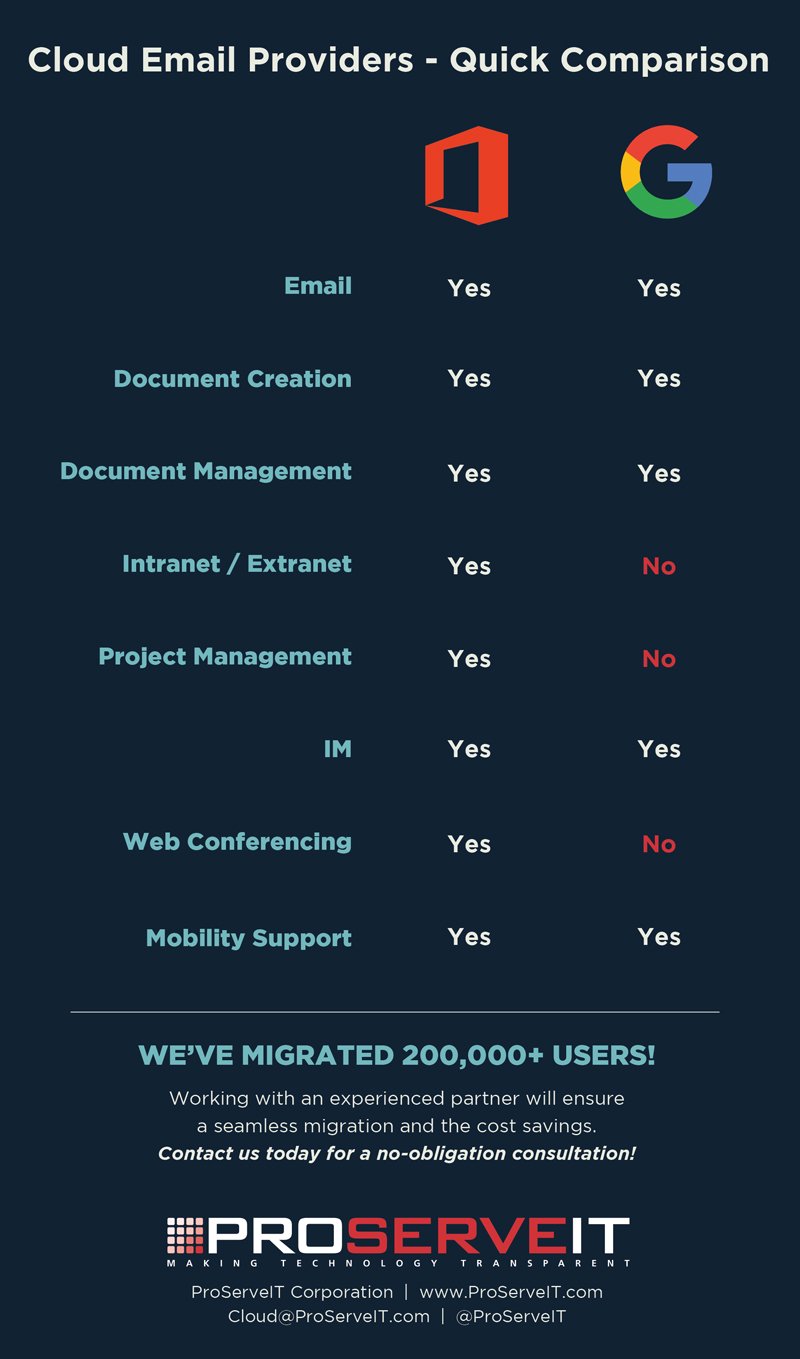How Can Businesses Cut Cloud Costs Without Losing Performance?
In our previous blogs, we’ve been discussing how email in the Cloud can be of great benefit to businesses. Now, in this blog, we want to turn our attention to the two largest email Cloud providers, Microsoft Office 365 and Google Apps. While not the only Cloud email providers, these two command over 75% of the marketplace.
Office 365 vs Google Apps: who comes out on top?
Each of the two major Cloud email providers has its strengths and weaknesses. In general, either platform will result in cost savings and productivity increases. However, in the Office 365 vs Google Apps comparison, the choice of which is the most suitable provider for any given business will come down to how closely the provider’s services match the needs of the prospective customer.
The following table outlines a brief comparison of the Office 365 vs Google Apps in terms of their general pros and cons. Keep in mind that this table is a basic comparison. It is possible that what appears as a pro is not perceived as a pro by some companies in specific instances.
Office 365
- Office 365 is a cloud-based version of Microsoft’s Office productivity suite. The email application, Exchange Online, can be purchased as part of the full online suite, or as a standalone product. Office 365 is the most popular Cloud-email platform among surveyed organizations.
- Exchange Online is email, calendar, and contacts software delivered as a cloud service hosted by Microsoft.
- The service is based on technology derived from Microsoft Exchange Server and the Microsoft Outlook email client. Users may access their email from either a desktop version of Outlook 2013/2016 or via a modern web browser.
- Pros:
- Cost-effective migration for businesses with active Microsoft agreements.
- Exchange Online can be purchased as a standalone service or as part of Office 365 – Microsoft’s Software-as-a-Service (SaaS) office suite.
- Typically for Exchange Online, a smaller adoption curve with existing users, as they will likely be familiar with Microsoft ecosystem.
- Cons:
- Increased vendor lock-in for Microsoft shops.
- In order to ensure a company maximizes ROI from the Office 365 platform, an adoption plan is required to utilize all appropriate components.
Google Apps
- Google Apps is Google’s SaaS office suite and is only sold as a full office suite, with Gmail as the email application. The suite is tied to Google Apps Marketplace, an online store featuring applications and extensions that add functionality to the suite. It’s the second most-popular
- Cloud-email platform.
- Pros:
- Highly developed spam filtering and antivirus functionality.
- Google Apps features an Apps Marketplace where users can download and install extensions to customize the platform.
- Cons:
- Lack of application-based pricing.
- Limited compatibility with Microsoft formats.
- Google Apps is sold as a complete office suite and its component applications are not available for purchase individually.
ProServeIT can help you decide
ProServeIT has been a ground breaker in helping many companies make the decision between Office 365 vs Google Apps and understanding adopting an email in the Cloud environment. Contact us to learn more about Cloud email deployment and how ProServeIT can help you through the process!
Tags:
October 27, 2016





Comments